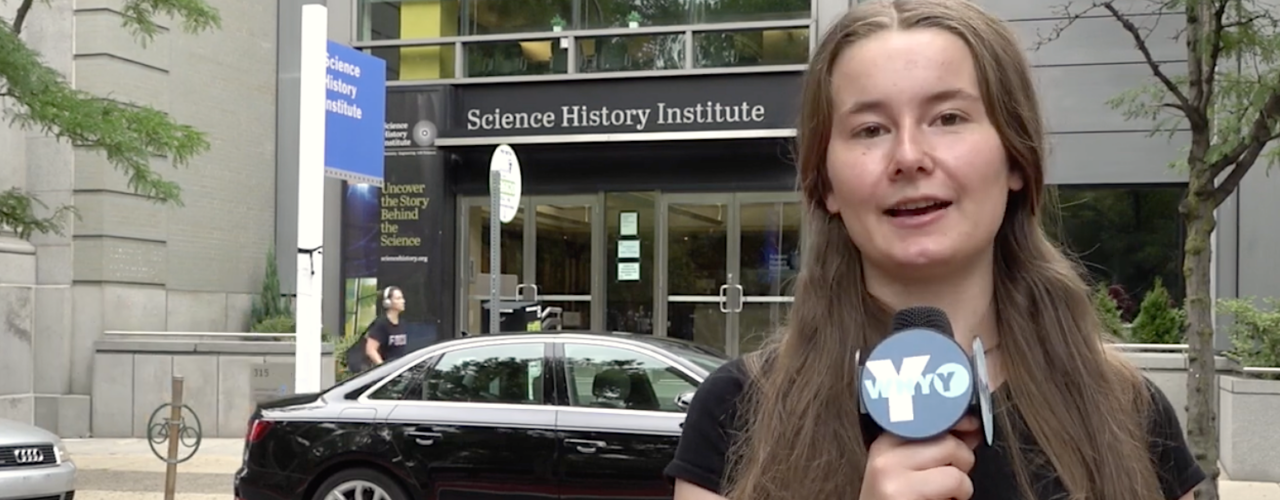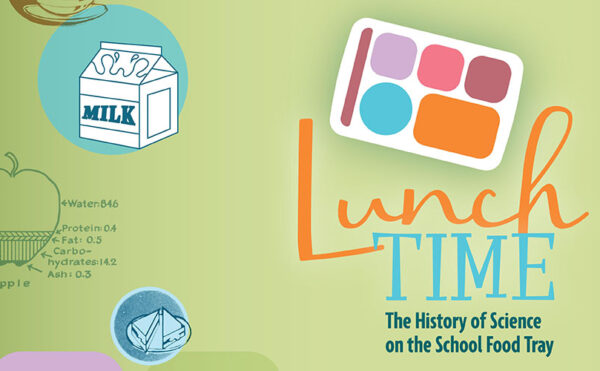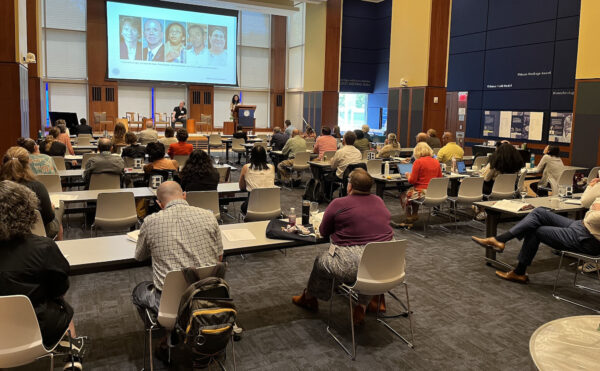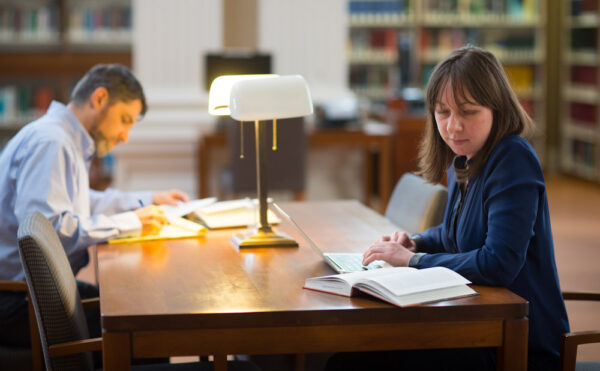
WHYY Summer Journalists Program Features Science History Institute
Student news report takes an in-depth look at how we tell the stories behind the science that shapes our everyday lives.
The Science History Institute was recently featured on WHYY as part of the public media outlet’s Summer Journalists program, an immersive journalism class for high school and middle school students in the Delaware Valley. The news story focuses on our free museum, offering viewers an in-depth look at our permanent displays, award-winning Downstream exhibition, and Object Explorer touch table.
“I really love the table there,” says one museum visitor interviewed by student reporter Pauli Voelkel (pictured above). “It’s really interesting the way it’s set up and how you can learn about the elements in a really easy and fun way.”
Also interviewed are gallery manager Vaughn Tempesta, curatorial affairs director Jesse Smith, and museum curator Roger Turner, who each emphasize the numerous ways we tell the compelling stories of innovators and scientific discoveries that shape our everyday lives.
Smith asks, “What are the instruments, what are the devices by which we know the world? How do they help us generate knowledge about our environment, about the human body?”
“From the clothes we wear, to the medicines we take, to the water we drink, science is essential and central to all of that,” adds Turner.
About WHYY Summer Journalists
The WHYY Summer Journalists program is for aspiring news reporters and offers intensive multi-week experiences for teens finishing grades 9–12 and a spring break program for middle school students. The project-based programs provide immersive media-production experiences in which the participants work in teams to create original news or film productions in news.
More News
Explore the History of Science on the School Food Tray with Institute’s New ‘Lunchtime’ Exhibition Opening September 27
Visitors will uncover the surprising story behind the school lunch.
Science History Institute Hosts 2024 Gordon Cain Conference
“Storytelling as Pedagogy” program explored using scientific biographies in the classroom and beyond.
Science History Institute Welcomes 2024–2025 Beckman Center Fellows
Our scholars study a wide range of topics in the history and social studies of chemistry, chemical engineering, and the life sciences.



